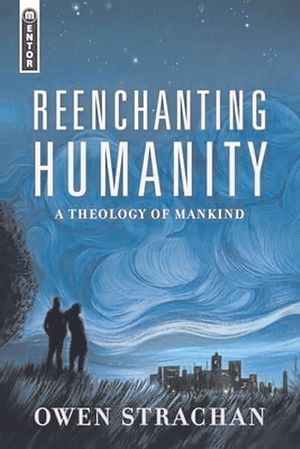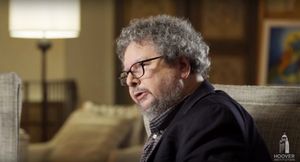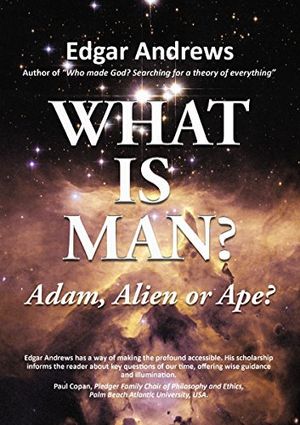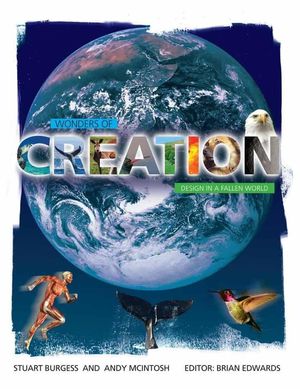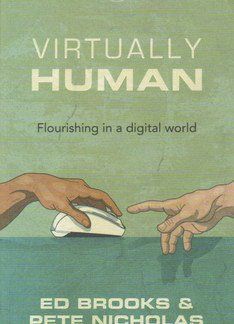Creation and the search for a biblical world view
September 2008 was a milestone for the erosion of academic freedom in the UK. It was the month when Professor Michael Reiss was required to stand down from his role as Education Director of the Royal Society. The incident is like an iceberg – it has a visible tip and a much larger invisible root.
Over the years, Michael Reiss has made it perfectly clear that he is not a creationist and that he does not advocate the teaching of creationism in schools. His concern is to promote science education among students that are sympathetic to creation (who constitute a significant minority).
How do educators communicate with these pupils? Do they tell them to stop believing nonsense and replace fantasy with fact? Reiss has seen this happen and knows it is bad practice.
Rather, communication must incorporate respect for the individual, and teachers need to recognise that creationists have a world view which differs significantly from that of our secular culture. Within this world view, it is not nonsense to think that the world and its living things are the handiwork of a wise and all-powerful Creator. Recognising this transforms the way teachers communicate with their students.
Reiss presented these views at the British Association Festival of Science meeting on 11 September 2008. The media picked up the scent of blood and reported that Reiss advocated teaching creationism in science lessons.
Nobel Laureates
It took a few days for the press to realise that they’d got it wrong. However, meanwhile, senior Fellows in the Royal Society had concluded that Reiss’ views were bringing the Royal Society into disrepute. Since the pressure group included three Nobel Laureates, there was little doubt about the outcome and Reiss resigned as Education Director on 16 September.
Almost immediately, the Press sensed the injustice. Reiss was acknowledged to be an expert in his field and highly regarded by his peers. Even Richard Dawkins distanced himself from what seemed to him ‘a little too close to a witch-hunt for my squeamish taste’. Lord Winston thought the Royal Society’s reputation was marred by the way it had treated Reiss.
However, apart from a few readers’ letters, nothing more has been said. Perhaps journalists regard the Royal Society as above criticism?
Creationism as a world view
If the elite group of Fellows were misled by the headlines about ‘teaching creationism’, there has been ample time to put the record straight and reinstate Reiss. So we must conclude that they objected to his analysis of creationism as a world view. There seems to be no other option, for Reiss appears to be mainstream in the rest of his thinking.
What is it about regarding creationism as a world view that these ‘guardians of science’ find so objectionable? Answer: once creationism is acknowledged to be a world view, the whole character of the debate changes.
It becomes reasonable to discuss the evidence for intelligent design in nature. It becomes rational to ask if the data suggests common descent from the first cell or whether there are major discontinuities representing ‘created kinds’.
Within this world view, adaptive changes in peppered moths in England or finch beaks in the Galapagos Islands convince no one that such changes have a bearing on the origin of moths or finches.
Once world-view thinking is recognised as relevant, it is actually nonsense to say that creationist theories lie outside the domain of science. Clearly, there is scope for a rational debate within science about the meaning of evidences.
World-view thinking was objectionable to the Royal Society Fellows because it makes a discourse inevitable between evolutionists and creationists. Both are working with the same data. The real test comes when their different interpretations of the data are subjected to critical scrutiny.
It is apparent, from the repeated statements of evolutionists over the years, that Darwinists do not want their treasured theories to be subjected to critical scrutiny. The only way to ensure supremacy is to reject any thought that creationist and Intelligent Design explanations are worthy of discussion.
World view thinking
If creationism is a world view, teachers must consider it alongside other world views. Does science have a world view? Is there a biblical world view and is creationism part of it? These are important questions – questions that church leaders, parents and students all need to ask.
Few realise that the Royal Society was founded by scientific pioneers who were largely Christian. The 1662 charter refers to the ‘uprightness of character and piety’ of Fellows. Another document from 1689 requires the Society’s president and deputies to take an oath ‘upon the holy Gospels of God’ to faithfully discharge their duties.
The founders did not regard Christianity as extraneous to science, but as foundational. Material things came from the hand of the Master Craftsman. Our world has an underlying design and behaves predictably because God is the God of order. Science is a journey of exploration to bring us closer to ‘thinking God’s thoughts after him’.
Scientific laws are the orderly patterns we discover by studying God’s creation. The proper domain of science is the realm of God’s providence – it describes the way God upholds his creation. These are all truths rooted in the creation narrative of Genesis, so creationists can embrace the scientific world view advanced by the pioneers of science.
But science has changed. Secularisation has gathered pace since the 18th century Enlightenment, which exalted reason above revelation and relegated God to the role of First Cause.
The quest for knowledge that was independent of God continued into the 19th century, with Charles Darwin as its most famous protagonist. Palaeontologist Niles Eldredge writes: ‘Darwin did more to secularise the Western world than any other single thinker in history’.
Darwin explained away design and provided atheists with intellectual fulfilment. Although Western science once had a Christian world view, contemporary science is dominated by secularism, reductionism and materialism.
Creationist world view
By contrast, a creationist world view has a spiritual dimension. Physical death is not ‘normal’ for mankind. It is an ugly intrusion. Once we accept that physical death is a consequence of sin, there are significant implications for our understanding of the creation of Adam.
The creation of man was a direct act of God. The material used was the dust of the ground. Only after Adam’s disobedience did physical death enter human experience. This explains why Christ had to die physically. Once we lose the link with judgement on sin, the crucifixion becomes an enigma.
The intellectual culture that dominates our own society views man as an evolved ape-like animal – not as a race that has ‘fallen’ from fellowship with God. Self-consciousness has evolved to replace instinct as the source of action.
There are big issues here for the terminology that Christians use. When we speak of people being ‘brought back to God’, we imply the restoration and enhancement of the relationship Adam and Eve had with God in the beginning.
Many who hear our words, however, know nothing of an initial state when man enjoyed the presence of God. Their world view has no place for a fall into alienation or death as a punishment for sin. Unless we recognise this and embrace ‘world-view thinking’ we shall not communicate the gospel effectively to our own culture.
Theistic evolution
Consider just one further aspect of the creationist world view. We see death, decay and pain – the struggle for survival. With Darwin, we observe variation and natural selection. Darwin saw these things as normal – as the mechanisms of transformation by which the biosphere developed. However, what we are actually seeing is not ‘normal’ at all, but the results of the Edenic curse.
Christians who adopt Darwinism (theistic evolutionists) have embedded the ‘problem of pain’ into their world view. All evolutionary explanations regard pain, suffering and death as ‘normal’ and in no way related to the sin of Adam.
To all evolutionists, the world we see today is essentially the world that has always been. There has been no Fall in history and no curse in Eden. If there is a Creator, he must have made the world like this.
This means that evolutionists are making important theological statements about the world (some evolutionists see this clearly). If there is a god, they say, he must be held accountable – for he used pain, suffering and death as the means of bringing living things from simple cells to complex organisms.
The Christian project to ‘Rescue Darwin’ (reported in October’s ET) claims to defend science against both creationists and militant atheists. However, the project betrays a near total lack of world-view thinking and fails to recognise the Bible’s creationist perspective.
Thus serious biblical and theological errors are being committed by Christians who want to make their peace with Darwinism. The Michael Reiss debacle provides a ‘learning moment’ for all involved with these issues – let us pray that its significance will not be lost.
David J. Tyler
The author is Secretary of the Biblical Creation Society and author of The Guide Creation – Chance or Design? (EP). Blogs at http://www.arn.org/blogs/index.php/literature



